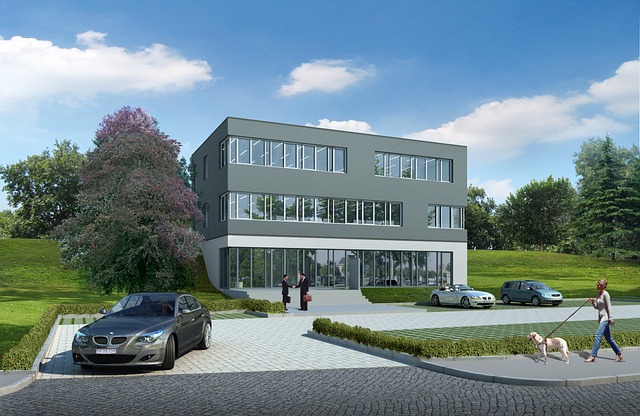Office buildings are the bustling hearts of modern business, where innovation and productivity thrive. But have you ever wondered what it takes to keep these architectural marvels in tip-top shape? It’s a behind-the-scenes symphony of systems and strategies, a delicate balance between the functional and the aesthetic.
From the gleaming glass facades to the humming HVAC systems, from the clean, well-stocked restrooms to the reliable elevators that whisk you to your destination, maintaining an office building is a complex dance of technology, planning, and, most importantly, a commitment to the comfort and efficiency of all who enter. Here’s what it takes to keep an office building in great working order.
Safety and Security Measures
Maintaining a secure and safe environment is paramount for any office building. Safety measures encompass installing and routinely testing fire alarms, sprinkler systems, and ensuring the availability of clearly marked emergency exits.
Security measures involve implementing surveillance cameras, access control systems, and security personnel where necessary to protect the premises and its occupants. Regular drills and safety training are crucial to ensure everyone is prepared for emergencies.
Additionally, providing fire extinguishers, first-aid kits, and clear emergency response instructions contributes to a well-prepared and secure workplace, enhancing the confidence and well-being of those working within the office building.
Regular Maintenance Schedule
A well-structured regular maintenance schedule is the backbone of keeping an office building in great working order. It involves systematically inspecting and servicing various aspects of the building to prevent issues before they become major problems. This schedule encompasses tasks such as HVAC system checks, plumbing inspections, electrical system maintenance, and more.
It’s advisable to enlist the services of a reputable handyman to handle these tasks efficiently and professionally. These experts can identify potential issues early, ensuring the longevity and functionality of critical building systems, ultimately contributing to a safe and comfortable work environment for all occupants.
Efficient Energy Management
Efficient energy management in an office building not only reduces operational costs but also minimizes environmental impact. Implementing energy-saving technologies like LED lighting and programmable thermostats, along with smart building automation, helps optimize energy consumption. Adequate insulation and regular maintenance of doors and windows prevent heat loss and drafts, ensuring a comfortable indoor environment year-round.
Sustainability practices such as renewable energy sources, energy-efficient appliances, and responsible energy procurement further contribute to an eco-friendly workspace. By prioritizing efficient energy management, office buildings can reduce their carbon footprint, save on utility expenses, and promote a healthier and more sustainable working environment.
Cleanliness and Hygiene
Maintaining high standards of cleanliness and hygiene is essential for creating a conducive and healthy work environment within an office building. Regular cleaning schedules should encompass common areas, restrooms, and individual workspaces. The implementation of robust pest control measures helps prevent infestations and ensures a pest-free environment.
Promoting recycling and waste reduction through well-marked recycling bins and proper waste disposal practices is not only environmentally responsible but also keeps the office looking tidy. Cleanliness and hygiene are vital for the well-being of occupants, as they not only enhance the aesthetics of the workspace but also mitigate health risks and foster a positive, productive atmosphere within the office building.

Technology and Communication Infrastructure
A well-maintained technology and communication infrastructure is the lifeblood of modern office buildings. Ensuring a reliable and up-to-date IT ecosystem is crucial, encompassing robust internet connectivity, efficient phone systems, and secure data storage solutions. Regular updates and security patches are essential to protect against cyber threats, safeguarding sensitive information and business operations.
Office communication systems, including intercoms, video conferencing tools, and phone lines, should be consistently monitored and maintained to ensure seamless connectivity. By prioritizing the upkeep of these technological assets, office buildings can enhance productivity, support effective collaboration, and maintain a competitive edge in today’s fast-paced business environment.
Exterior and Landscaping
The exterior and landscaping of an office building play a pivotal role in creating a positive first impression and maintaining functionality. A well-maintained facade, roof, and parking areas not only enhance the building’s aesthetic appeal but also protect it from weather-related damage. Regular inspections and upkeep of walkways, parking lots, and exterior lighting contribute to safety and accessibility for employees and visitors.
Additionally, landscaping should not be overlooked, with regular maintenance of lawns, trees, and shrubs, along with addressing irrigation needs, to create an inviting and pleasant outdoor environment. A well-kept exterior and landscaping portray professionalism, boost employee morale, and attract potential clients, making it an integral aspect of overall building maintenance.
Maintaining an office building in great working order involves a multifaceted approach. A well-structured maintenance schedule, adherence to safety and security measures, efficient energy management, cleanliness and hygiene, technology and communication infrastructure, and a well-kept exterior and landscaping are all critical components. By proactively addressing these aspects, office buildings can ensure the safety, comfort, and productivity of their occupants while projecting a professional and inviting image. This comprehensive approach not only promotes employee well-being but also contributes to the longevity and sustainability of the building itself.

